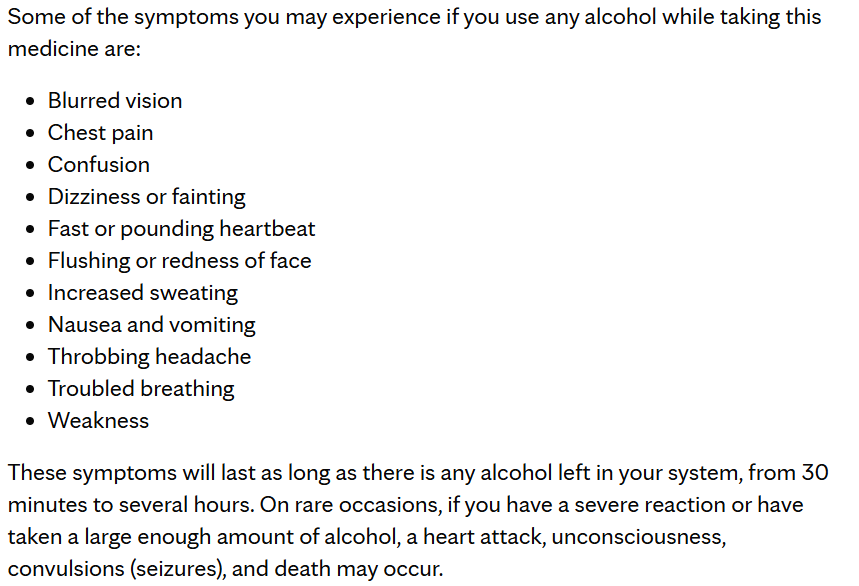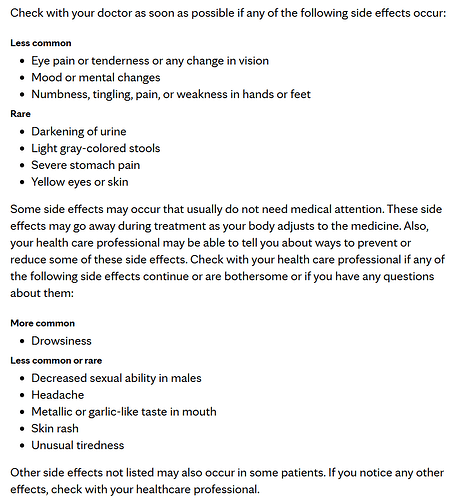I don’t believe cocaine and marijuana are the drugs in question here.
Am certain there are nicer islands to visit.
That’s why the next sentence was about heroin and crack. Even lower consumption prevalence. Really hard to minimize consumption with marketing bans.
You were replying to me in my reply to @Izzy_the_busy_bee where they stated that forbidding things made them more appealing and I disagreed with that.
I gave the example of countries where tobacco has been mostly outlawed, smoking rates had gone down.
If what @Izzy_the_busy_bee had said, smoking rates should have gone up.
What you have written makes no sense apart from that weird mod thing of trying to create arguments out of nothing.
Because it’s 2 different problems.
Easy to make the population smoke less when the prevalence rate was 50% as in the past.
When 1-2% of people fools around with heroine and crack, the hypothesis of tantrum-throwing children may not be wrong, the ban may make things more appealing.
Anyway, heroin and crack marketing and trading is already banned. The trading of small doses is tolerated because this reduces death by even more dangerous drugs, and dealers shooting each other on the streets. If dealers are prosecuted too much, even worse people will come out of the sewers to sell crushed pills + fentanyl (or something stronger) and there might be a risk of mass poisoning.
true, they don’t smoke anymore…they vap, pooch & snuss… which, at the end, include the addictive molecule - nicotine. Don’t trust me, trust the Lancet. I found this study, specifically for UK.
Trends in vaping and smoking following the rise of disposable e-cigarettes: a repeat cross-sectional study in England between 2016 and 2023 - The Lancet Regional Health – Europe
you will see also that the rising is mainly among youngsters – (same stats for Switzerland, actually). I think @Tom1234 forgot his own rebellious self from (50…?) years ago… ![]()
I don’t think that medically we are even close to the situation where, ‘there is a pill for everthe addiction’ solution… without aberrant TAEs-- let me give you the list here for the pill to ‘cure’ alcoholism..as an example… so, I agree with you, @Tom1234 that prevention is a good approach. But that does not eliminate the problem of the availability through uncontrolled channels…
…and there are more
So, ultimately, I am a big advocate for education. Objective information to young people, also on this, as early as needed, as part of their school curriculum. Sooner or later, they will find themselves in front of that ‘option’, at least, they will be able to decide in a knowledgeable manner…
Odds and bobs of reports and documentaries I’ve seen in recent years suggests that young people are anyway eschewing all this “dirty stuff” that young people used to put in their bodies. Cigarette and alcohol consumption seems to be on a downward trend. Whether that is being equally picked up with other tobacco products to fill the gap seems to vary in results but my son’s peer group certainly seems to be more into going to the gym, sunscreen and being mindful of what you put into your body.
The rising rates are the same for Australia too.
Among the youngest legal age group of users surveyed there, 18-14 years, 58% had never smoked before vaping so this argument people like use that it’s a smoking cessation tool is a load of tripe.
It will be interesting to see if their recent ban on sales of vapes etc apart from in pharmacies has any affect on usage by youngsters.
Wasn’t there a tobacco company giving away free no-smoke tobacco products to youngsters at a festival here in Switzerland recently? (to get them hooked?)
But you have kind of proved a point I made earlier - the cartels, be they Philip Morris et al in Switzerland, or those more illegal, but just as despicable in Asia/South America, will just find other products to push if their existing markets dry up.
I’m not. It doesn’t work*
Look at obesity levels in the Western world. People know what to eat but they can’t stop.
Weight-loss drugs are actually the thing making a difference.
*Interesting, as far as cigarette smoking is concerned, telling people it is harmful will not work in getting them to stop.
Getting their doctors to tell them they will die from smoking if they don’t stop immediately, backed up with drugs to reduce the cravings has been very successful.
Anecdotally, the two people I know who were live-long heavy smokers, and had absolutely no intention of giving up, both stopped and never started again after a direct and frank talk from their doctors and been given smoking-cessation medicine.
Regarding hard drugs, there’s of course that study from the 1970s where rats were put in a cage with no stimulus and given a choice of water to drink or water laced with morphine.
They all got totally addicted.
In another cage, rats were given the same two choices of drinks but plenty of stimulus - rats of both sexes, toys, nice food etc.
Although the second group did try the morphine, they did not consume so much and mostly drank the plain water.
This would suggest that a good way to get the drug addicts off the streets, and off drugs (and to stop new users) would be through social programmes and help.
To me, this would seem preferable than just keeping them drugged up and not a bother, as others have suggested on this thread.
Maybe we could avoid summoning the strawman just this once?
I am with you in the central part of the post, but not necessarily with the top and the bottom, although I see your point.
Well, you are substituting one “drug”, with another drug --controlled, but a drug. But not all >40% of obese people are ‘food addicts’. We are talking about lack of self-control, discipline, and accountability.
If we follow the trend of thought, wouldn’t then big food companies (put here any name), or big drinks companies …or even big pharma companies be at the same level than the tobacco companies, on the creation of ‘addicts’?..
I agree that ‘social programmes’ would help. Maybe not the social programs that are established today…but that’s a very different discussion!
They are. At the time that the large food manufacturers starting producing all this UPF, high calorie, melt-in-your mouth slop, they were owned by tobacco companies:
Major tobacco companies like R.J. Reynolds and Philip Morris (now Altria) historically owned large food companies such as Nabisco, General Foods, Kraft, and brands like Hawaiian Punch and Del Monte. These tobacco companies expanded into the food industry in the late 20th century, leveraging tobacco marketing strategies to sell food and drink products, including those marketed to children.
There’s plenty of written evidence too that Nestle were (are) getting people hooked on UPF food including indigenous Amazonian tribes.
These tobacco companies expanded into the food industry in the late 20th century, leveraging tobacco marketing strategies to sell food and drink products, including those marketed to children.
Turns out that education DOES work; just depends how good you are at it, and the message you are sending out…

